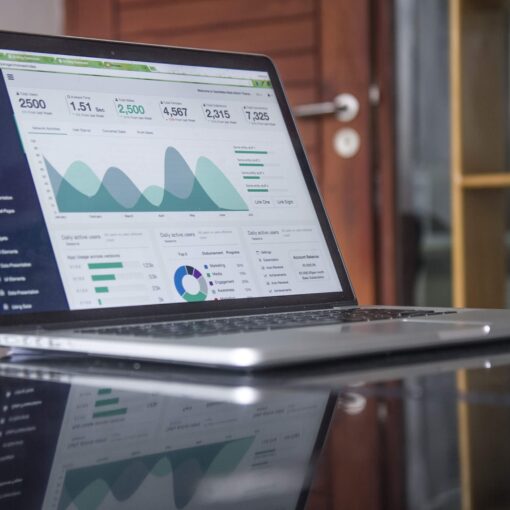Key Concepts and Takeaways
– Embrace digital platforms to connect with buyers and sellers effectively.
– Utilize data analytics to understand market trends and customer needs.
– Optimize your product listings for better visibility in marketplaces.
– Leverage social media to promote your brand and engage customers.
– Implement a seamless payment system to enhance user experience.
– Focus on building strong relationships with both buyers and suppliers.
– Offer exceptional customer service to differentiate from competitors.
– Stay updated on industry regulations and compliance standards.
– Invest in marketing strategies tailored for B2B audiences.
– Continuously gather feedback to improve products and services offered.
 B2B business-to-business marketplaces have been around for a while, but the industry is now on the brink of a transformation. B2B marketplaces have traditionally been focused on the buying and selling of goods and services, but more recently, they have begun to provide more comprehensive value as they expand into new verticals.
B2B business-to-business marketplaces have been around for a while, but the industry is now on the brink of a transformation. B2B marketplaces have traditionally been focused on the buying and selling of goods and services, but more recently, they have begun to provide more comprehensive value as they expand into new verticals.
In recent years, the global trade platform has seen a complete transformation, as B2B marketplaces have garnered enormous appeal across the globe market. It is an online platform that connects wholesale buyers and sellers from all over the world, allowing them to conduct direct transactions not only with their local partners but also with other international trade partners, thereby eliminating geographical restrictions and increasing the company’s revenue while simultaneously decreasing costs.
Contents of This Page
Suppliers Have a Competitive Advantage in B2B Marketing

B2B companies face a unique challenge when it comes to marketing their products. Unlike many B2C companies, they cannot rely on advertising to reach all potential customers. Instead, they must work with the individual suppliers who are selling their products to make sure that their marketing efforts are coordinated. This is not an easy task for any company, but for B2B suppliers, it can be even more difficult than usual.
The marketing of a company’s products and services is often overlooked by sales and customer service. One reason for this oversight is that sales teams and customer service agents do not have the expertise to market and sell the product. Rather than just watch customers walk away, suppliers can rely on their competitive advantage: knowing the product inside and out. Suppliers are able to provide more detailed information about the product or service than sales or customer service reps, who might not know every aspect of the product line.
The complexity of the B2B marketplace makes it difficult for suppliers to effectively participate. Today, businesses are doing more research online before they buy. The internet has become a competitive advantage for suppliers who understand how to reach customers on search engines, social media sites, blogs, email newsletters, and other digital channels. Suppliers can also use this information to create targeted content that is relevant to the customer’s industry and needs.
In the B2B market, one benefit for suppliers is the opportunity to reach new and prospective clients as well as other markets without having to physically establish a brick and mortar shop in order to boost the company’s exposure. This lowers the operational expenses associated with opening a new storefront, as well as the costs associated with recruiting employees to staff the business. Instead, the corporation may utilize the budgeted funds to increase the efficiency of its distribution network, or they can divert the funds to another purpose.
Additionally, it has the benefit of streamlining the ordering process, making it more efficient without having to compromise on the overall quality of the product. Using B2B platforms, sellers may reduce their processing costs by up to 10 times the amount they would have paid otherwise.
Another advantage of the platform is the reduction in costs associated with advertising and advertisements. The majority of businesses that engage in advertising or marketing efforts are unaware of where the other half of their campaign will end up, and some even consider them to be waste. Retailers and manufacturers can now track down every campaign or advertisement that they release to the public through social media platforms that are integrated with their software and determine whether those campaigns or advertisements were successful or whether they need to be revised in the future.
Buyers Gain from B2B Marketing Advantages

Traditionally, B2B marketing has been the domain of consultants or small business owners with an understanding of how to operate in that market. But now, marketers have the opportunity to harness the benefits of this methodology for their own company.
For many companies, reaching their customers is an expensive and time-consuming task. A report by McKinsey found that the average cost of acquiring a new customer is $4,600, and it can take as long as 18 months to gain a customer’s business. Fortunately, the best way to reach your target audience isn’t just for big brands.
Buyers are becoming increasingly engaged in the B2B marketing process. According to research, “buyers are looking for information away from the company’s website and instead using their social networks to gather information.” This can be seen as an advantage by companies because they are able to reach out to potential customers on their own terms. The lack of personal contact can also be seen as a disadvantage because buyers have fewer opportunities to have questions answered through face-to-face conversations.
In terms of connecting with wholesale suppliers all around the globe, the site is a fantastic resource for wholesale buyers. The fact that the platform eliminates the difference and restrictions imposed by geographical constraints allows buyers to bargain with several suppliers at the same time while saving money on transaction costs. The use of a B2B platform provides a more efficient ordering procedure as well as a more effective technique of monitoring the delivery of the items ordered by the customer.
Another opportunity that would arise as a result of the use of the platform is the fact that buyers are no longer restricted in terms of their sources or suppliers because, with the introduction of the B2B platform, they now have the opportunity to meet and negotiate with a variety of suppliers, allowing them to reduce their source material acquisition costs while still being able to provide high-quality products to the end consumer.
The benefits of using a B2B platform are many, and the potential is almost infinite; nevertheless, it is critical for those who are interested in using one to choose a B2B provider that is compatible with their company’s goals and criteria, as described above.

Kevin Collier is a seasoned writer and technology enthusiast with a passion for exploring the latest industry trends. With a background in digital marketing and content creation, he brings insightful perspectives to imhits.com on emerging technologies, innovations, and their impact on everyday life. When he’s not writing, Kevin enjoys experimenting with new gadgets and sharing his knowledge with fellow tech aficionados.





